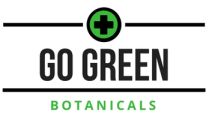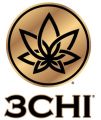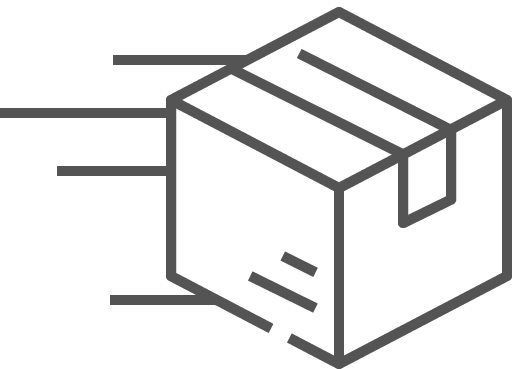
Synthetic CBD: Cheaper, Faster, Easier…or Dangerous?
Cheaper isn’t always better. California researchers are testing the effects of a cheaper made synthetic version of CBD, claiming that this less potent CBD product can be as effective as natural extracted CBD when treating certain maladies. These researchers can see the benefits of companies creating synthetic products because they are quicker to produce and easier to sell due to their low cost. This cheaper made synthetic product might benefit companies, but can this irregular component be beneficial for us consumers? Individuals usually deter their family and friends from using artificial medicinal products, so why does the corporate world want us to embrace synthetic CBD instead of a natural remedy from cannabis?
With the University of California’s study on a group of lab rats, these scientists have documented how the synthetic CBD property 9- Dihydrocannabidiol, also known as H2CBD, has helped reduce and ease seizures. Although the team’s research had positive results, they have still yet to determine if this synthetic property is safe and healthy for animals and humans to consume on a daily basis. The University of California’s team of scientists has only demonstrated how H2CBD acts as a mild sedative for small animals, but they have yet to compare their results with natural CBD studies and findings.
Why Replicate To Be Synthetic When It’s Made Organic?
Last year the U.S. Food and Drug Administration (FDA) approved of a cannabis-derived product Epidiolex for human clinical trials. The UK’s GW Pharma product is a naturally derived CBD drug made to treat two forms of severe childhood epilepsy. Due to its high cost of $32,500 a year, the University of California researchers are looking into how H2CBD can be mass produced at a low rate for consumers, ignoring the fact that this synthetic product might not benefit consumers with more severe cases of inflammation, anxiety, addiction, etc.
These researchers have seen H2CBD’s production increase in jurisdictions were CBD and marijuana are highly regulated. Since H2CBD can’t be formulated into THC, some companies who want to get into the CBD business feel that it is a safer bet to mass produce synthetic CBD for customers who are worried about testing for small levels of THC. Even though CBD can be extracted without THC naturally from the hemp plant, biotech companies who are eager to profit from the CBD boom are fashioning synthetic CBD from yeast and other artificial properties. Biotech corporation CB Therapeutics has announced their plans last year to create synthetic CBD from sugar, using the growing demand for CBD as a reason to create a cheaper component without any research into how their product can impact an individual’s health.
Cannabis Sales At A Rocket High
With the growth of CBD’s expansive industry, it’s hard for companies to ignore the skyrocketing sales numbers. According to New Frontier Data, CBD sales around the country have reached a whopping $367 million from 2014 to 2017, expecting the number to rise over 1.3 billion by the year 2022. The increasing sale’s rate has prompted Congress to pass the Farm Bill last year that removes hemp from the substance one list, although what to do about continued production of CBD products in other strictly regulated cannabis states is still up in the air.
More companies who are only seeing the financial benefits from the CBD boom are rushing to patent a synthetically made CBD product to quickly mass produce the component for the growing demand since they don’t want to pay the extra expenses to naturally extract CBD from hemp. Plus, it would be very difficult for a company to patent a natural growing plant that could essentially be grown anywhere.
Synthetic CBD Isn’t New To The Shelves
In the past, we have seen how synthetically made properties like K2 have been banned in legal cannabis states due to dangerous side effects. K2 is packaged as “potpourri,” “spice,” or “incense,” hiding the fact that the K2 chemical was sprayed on a plant like substances to mimic the look of medicinal marijuana. Since its sale, many consumers have dealt with addiction symptoms and acute psychotic episodes. Other dangerous side effects from K2 also included unconsciousness, elevated heart rate, seizures, anxiety, hallucinations, and even death by a heart attack.
Unfortunately, there are a lot of synthetic CBD products out on the market that is labeled to have organic or natural CBD, making it very difficult for consumers to determine if their product is synthetic or natural when shopping for CBD online and in store. One of the most common ingredients in artificial CBD is oleamide, a fatty acid derivative that can cause hallucinations. Some manufacturers of this synthetic component also add harmine and harmaline in their products that can also cause a mild psychedelic effect.
The Importance of Good Quality
Because the manufacturing process to create high-quality CBD is costly, many brands try to cut costs by using artificial CBD and selling their product for a very inexpensive rate. Another helpful tip to discovering if your product is made from natural CBD is to do a bit more research into its extraction process. High-quality CBD is obtained by using a CO2 extraction process that is formulated by a licensed pharmacist for each product.
Last but not least, always check if your CBD product has third-party lab tested results to ensure that your CBD product is approved with the highest industry standards and regulations.
Feel free to ask a Go Green Botanical’s certified consultant for further advice on how to find out if your CBD product is possibly made with synthetic CBD.
 Shipping
Shipping Delivery
Delivery Local Pickup
Local Pickup





